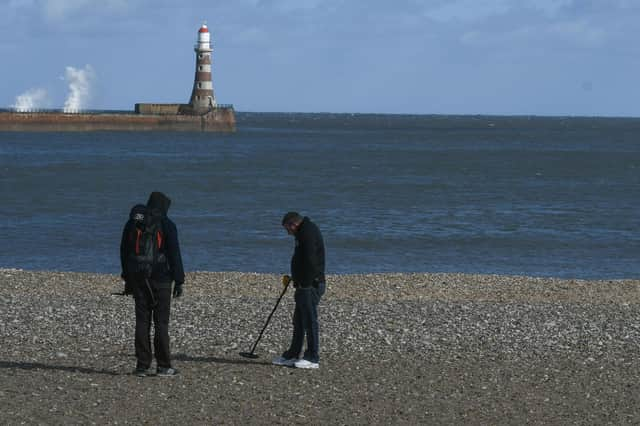Abbas Nasir

SOUTH Africa has shown the way to the impotent Organisation of Islamic Cooperation member-countries by taking Israel to the International Court of Justice in The Hague and presenting a robust case for a ruling against the Zionist state which has executed a genocide with impunity so far.
Given the composition of the ICJ, in the end any verdict given by the court may represent the compulsions of the 16 judges and the stance of their countries of origin on various issues rather than the merit of the arguments presented before it.
But as things stand this weekend, many independent legal experts are lauding South Africa’s preparation for and presentation before the court, and feel that the case stands established. The political compulsions referred to were listed very eloquently in a TV interview by US Jewish academic Norman Finkelstein, who vehemently opposes Israeli policies towards the Palestinians.
For example, he said that among the permanent members of the UN Security Council who have seats on the ICJ the position of the US and UK was very clear with slight ambiguity about France’s stance, given different Macron statements at different times.
True to Mandela’s spirit, South Africa has gone and stood in the corner of the oppressed.
Equally, Prof Finkelstein was unsure with Russia’s vulnerabilities on Ukraine and China’s on Uighurs, the judges from the two countries would vote against Israel for fear of opening the door to similar charges and cases against their own countries.
Ergo, notwithstanding the merit of the case by the excellent South African legal team, he suspected the decision may go in Israel’s favour by a small majority. For further details, look up his interview which is available online. This by no means is a foregone conclusion but his breakdown and analysis carried weight.
In any case, even a verdict calling for an immediate ceasefire may have amounted to naught. Israel lost the moral argument within weeks of its Gaza campaign after the Hamas attacks of Oct 7 last year, but has carried on relentlessly, egged on by unconditional support from the US and its Western allies and has been immune from global outrage at daily images of its slaughter in Gaza.
In Europe, Germany has been particularly active with its own government leaders and through the German EU Commission President Ursula von der Leyen to plead Israel’s case. Both have seemingly remained blind to the Gaza genocide, compelling some commentators to say Germany wants Palestine and Palestinians to atone for the sins of Nazi Germany by quietly submitting to the ongoing genocide.
True to Nelson Mandela’s spirit, South Africa has gone and stood in the corner of the oppressed. In doing so, it has tried to reciprocate how the Palestinians stood by it through the PLO during the African National Congress’s (ANC) long struggle against the apartheid regime when it was termed a ‘terrorist organisation’ by the US and other Western powers.
South Africa’s decision to move the ICJ reflected very badly on the member states of the OIC, the ummah, which have extended little support even rhetorically to the Palestinians in the face of a genocidal Israeli assault. To be honest, reflected badly is an understatement. It shamed them.
From Turkiye and Saudi Arabia to Egypt, UAE and Bahrain words have come to varying degrees but nothing more substantial. The less said about the Pakistani position the better. Despite each of these countries’ disagreements with the US in other areas, they seem helpless in taking a robust line for the Palestinians because, it seems, they fear annoying Washington.
After the 1973 Middle East flareup, the Ramazan War, (Israel called it the Yom Kippur war), when President Nixon asked Congress for $2.2 billion in emergency assistance to Israel, the Organisation of Arab Oil Exporting Countries imposed an oil embargo targeted mainly at the US.
This quadrupled the price of oil in the international market. Higher oil prices inevitably led to higher commodity prices and side by side with spurring inflation also slowed growth. The impact on Western economies was soon to be felt as energy shortages were also rampant.
Today the memory of those days is fast fading aided by the utter disinterest in, and apathy towards, the Palestinian victims of genocide among the US allies in the ‘Islamic’ countries in the Middle East with vast oil and gas reserves and immense wealth, mostly kept in US and other Western banks. All this as Biden pumps in bombs, military equipment worth some $15bn to facilitate Israeli atrocities.
The ‘Islamic’ countries/entities that are speaking up for the Palestinians such as Iran, Yemen and Lebanon’s Hezbollah and possibly Syria, which their supporters call the Axis of Resistance, have limited ability to do more as they have long suffered crippling US-led international sanctions.
While Iran was sanctioned on grounds of pursuing a nuclear weapons programme and supporting international terrorism and its own often poor human rights record, the others have faced isolation on not dissimilar grounds, apart from the nuclear arms charge.
Israel’s hugely disproportionate response to the Hamas attack on Oct 7 last year, during which the Zionist state has targeted women, children and all infrastructure in Gaza with the aim of rendering it uninhabitable and forcing the Gazans out, and the Western support to it, have opened up a huge divide between the Global South and the North with the latter backing the genocide in the name of right to self-defence.
For now, some countries in Latin America and most notably South Africa have taken concrete measures, so to speak, to put their money where their mouth is. The horror the rest of the world feels may be reflected in the UN General Assembly votes on a ceasefire but that is how far it is prepared to go. To so many, what South Africa has done is heroic, principled and ethical.
The writer is a former editor of Dawn.
abbas.nasir@hotmail.com
Published in Dawn, January 14th, 2024







.jpg)



